Subscribe to our E-Letter!
Subscribe to our e-mail and stay up-to-date with news and resources from street vendors around the world.
On October 2021, a StreetNet delegation composed by International Coordinator Oksana Abboud and Media Officer Margarida Teixeira traveled to Barcelona, Spain to discover the innovative cooperative – Top Manta – and association of migrant street vendors –Manteros– and to understand the struggles of informal traders in the city.
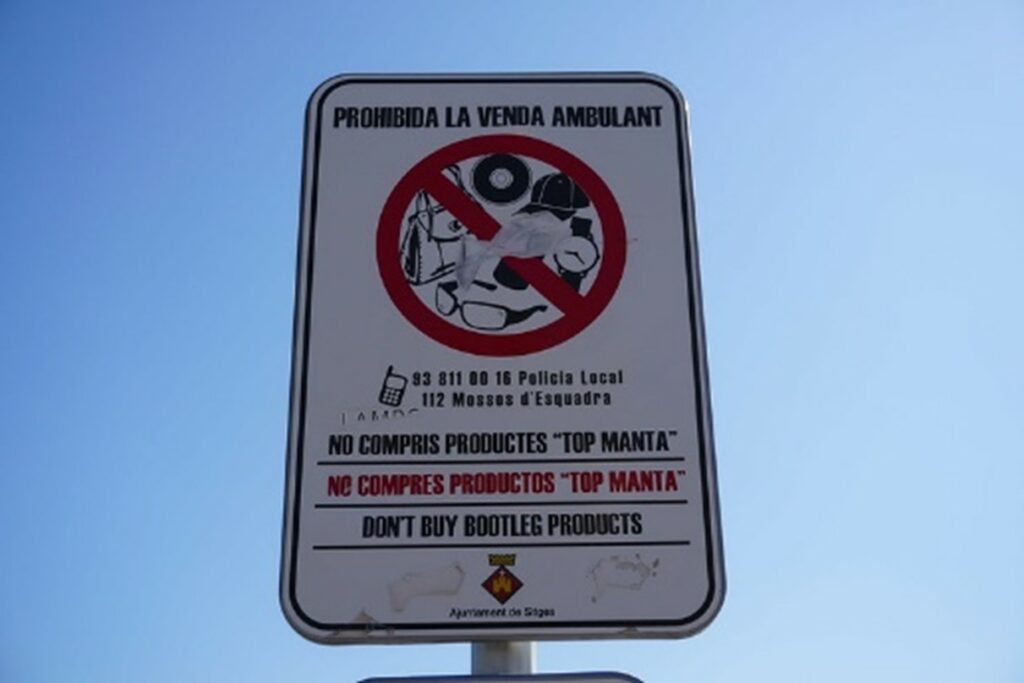
Mantero is one of the names by which mobile street vendors are referred to in Barcelona. The term derives from the Spanish word for “blanket”, referring to the blankets that street vendors will place on the floor with their products.
In Barcelona, street vending is not allowed. Oftentimes, the manteros are persecuted by police and must pay fines or be charged with crimes when they are caught. When we walk through the streets of Barcelona and a nearby seaside town called Sitges, we can tell that most street vendors are migrants, which means they are even more vulnerable to police harassment.
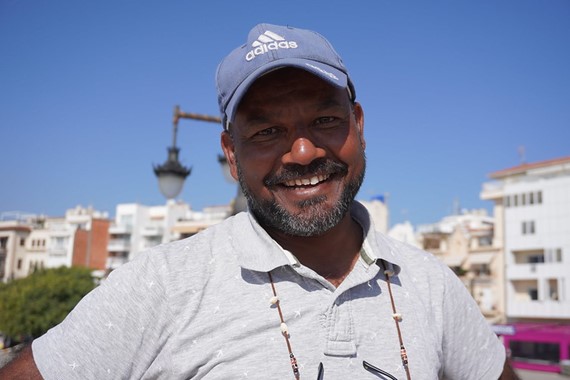
Most manteros are young men, mainly from West Africa, specifically from Senegal and neighbouring countries. They migrate to Europe looking for better opportunies, but struggle to achieve legal residency or permission to work. Due to their undocumented status, any contact with police can be threatening. If manteros are found guilty of commiting a crime, that can also hinder any possibilities of achieving legal residency.
But even when manteros are legal residents in Spain, they still face police harassment. However, due to low wages, it can still be preferrable to work as a street vendor. As Zarif, a street vendor in Sitges explained, he can still achieve a higher income selling than by working a formal job, even when he has to pay fines.

Zarif, like many other street vendors in Barcelona and Sitges, is from South Asia – specifically, from Bangladesh. He has a family in Bangladesh that he should feed and support while vending on Barcelona’s streets.
In Barcelona, we also had the chance to speak with Khan, a street vendor from Pakistan. For Khan and others like him, street vending is not a way of life, but rather an alternative or the only option to make ends meet when opportunities of formal employment were restrained due to the COVID-19 pandemic.
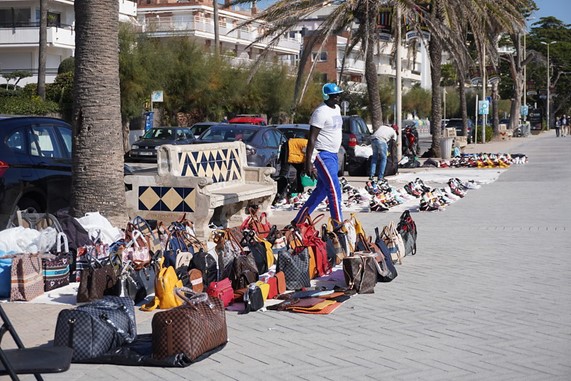
Top Manta is a cooperative of migrant street vendors which was officially created in Barcelona in 2021. This cooperative currently sells many products, such as t-shirts, hoodies, sneakers and tote bags, both online and in the physical store in the Barcelona city center.
The cooperative was launched after many years of struggle by street vendors in Barcelona. It all began with the tragic death of a mantero in a police raid in 2015.
After the death of the mantero, several clashes with police ensued. Street vendors, mainly from Senegal, started organizing in an informal union – the Sindicato Popular De Vendedores Ambulantes de Barcelona (Popular Trade Union of Street Vendors of Barcelona). We spoke with two of the co-founders of the group – Lamine and Daoud – who explained that, along with other comrades, they started to mobilize other vendors, members of the public and activits to challenge the system and to provide solutions on assisting migrant vendors in legalizing their status and employment
One of their strategies was to organize “rebel markets” in Las Ramblas, with the support of local activists who would act as protectors against police while the vendors would occupy the streets and sell their products, as a way of advocating for their right to work. These local activists were organized in an informal collective called Tras la Manta (“Behind the Blanket”), as a way to show solidarity with street vendors without speaking in their place. As Daoud explained, “We always thought it was very important for manteros to speak for themselves. You can support us, but you should not speak on our behalf”.
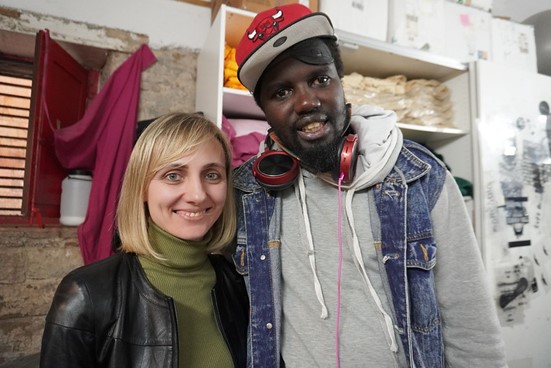
The manteros would also hold public assemblies which local residents could attend and ask directly questions related to their work, as a way to combat stereotypes and prejudices. As Daoud explains, many people thought that manteros were criminals because they did not have legal residency, did not pay taxes and sold illegal goods. But, as he explains, “no human being is illegal”. Manteros, as do all street vendors and informal economy workers, also contribute to the local economy and pay indirect taxes such as VAT, but they do not receive any benefits in return. Finally, most of the goods sold by street vendors are legally purchased in the city, so street vendors should not be accused of selling illegal goods but rather considered as those who contribute to the local and national economy of the country.
As street vendors managed to mobilize and organize, thus exercising more pressure for public officials to take action and stop harassement, the union also started to consider alternative ways of operating which could foster systemic change and allow street vendors to achieve legal residency and employment. In 2017, they launched Top Manta as a brand and organized a crowdfunding campaign which allowed them to create a printing workshop and a sewing workshop. Finally, in 2021, they created the Cooperativa Popular de Vendedores Ambulantes (Popular Cooperative of Street Vendors), which has achieved not only local but as well as international recognition.
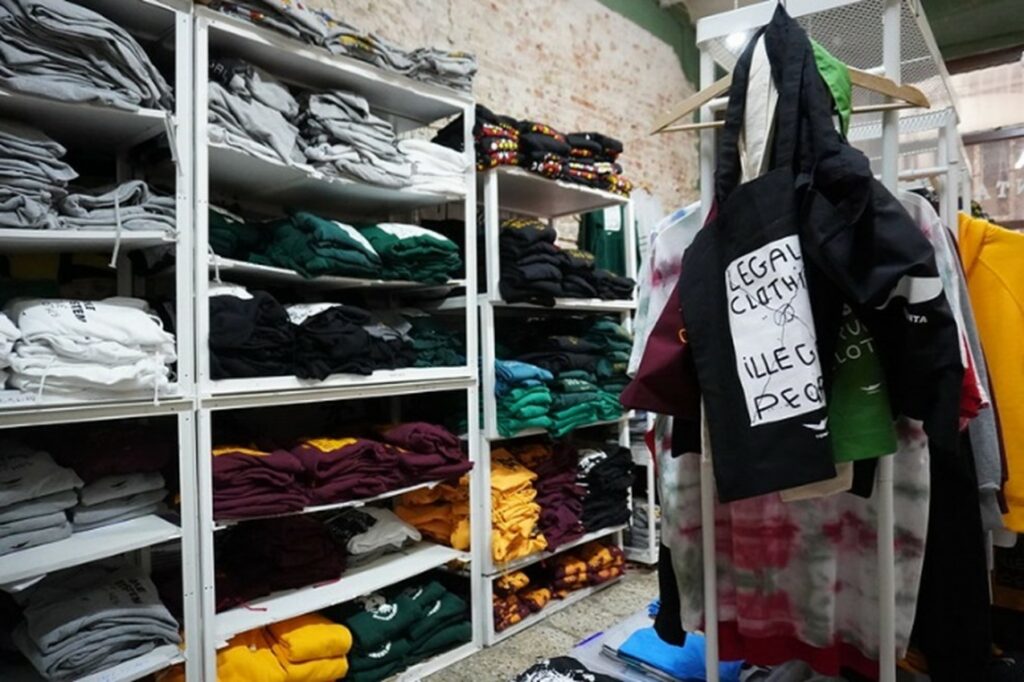
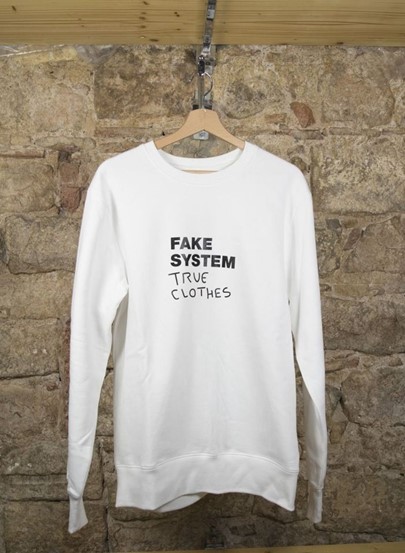
The name “Top Manta” derives from a derogatory term by which street vendors are referred to. It alludes to the act of running from the police, when vendors have to collect all items from their blanket in a hurry. By choosing that name for the brand, Daoud explains, they wanted to turn it into a positive statement.
All the products of Top Manta work at the same time as fashionable products and also as advocacy materials with powerful messages for change. For example, many of them feature slogans of Top Manta such as “Legal clothes, illegal people”, which refers to the way in which clothing can cross borders more easily than people themselves. Or the slogan: “Fake system, True Cloths” – referres to inequality and abuse inside the production system of real cloths and goods”.
The cooperative runs a sewing workshop, where roughly 17 members are trained in sewing clothing. The workshop is led by a young woman, Yumi, from Senegal, who explained to us that they sew clothing for Top Manta but also for others clients, mostly associations from Barcelona. The workers are paid a living stipend and are in the process of obtaining legal residency status. During the COVID-19 in 2020, the workshop also produced masks and other protective gear and donated it to hospitals in Barcelona.
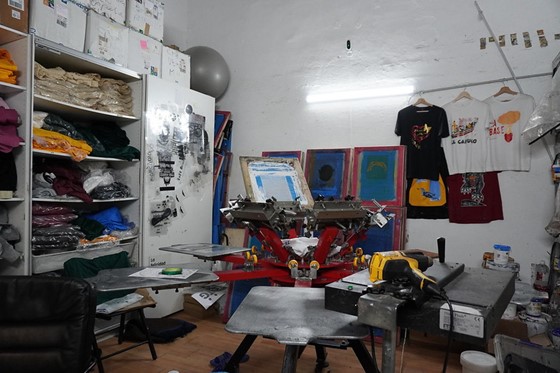
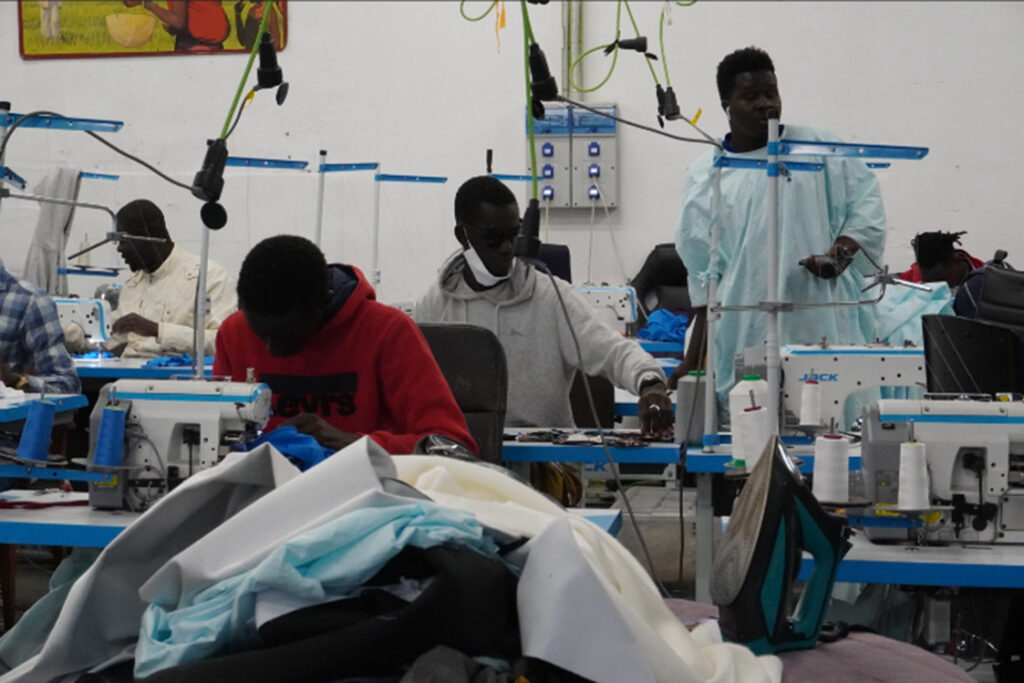
Besides the sewing workshop, Top Manta also has a printing workshop, where the slogans are printed into the products (such as shirts and hoodies), an online store and a physical shop.
According to Lamine, the goal of the cooperative is to allow street vendors to learn skills and have the opportunity to enroll in training programs which can allow them to work and have the possibility to achieve legal residency in Spain.

For Lamine and Daoud, the cooperative and the brand are tools which can provide members with a better life, but the goal of the trade union is to challenge the discrimination faced by manteros. Many of them do not have any other choice except selling to survive once they arrive in Spain and were often forced to migrate due to circumstances outside of their control. As they explain, many manteros actually have other skills, such as fishing, but could not sustain themselves in Senegal.
Therefore, human rights and migrats’ rights advocacy is the core of the work of the Popular Trade Union of Street Vendors of Barcelona. Although they are mostly present in the city itself and in neighboring towns with many street vendors, such as Sitges, they are part of national networks in Spain and are regularly asked to share their experiences at the international level.
Through Top Manta and their advocacy work at local and international levels, the Popular Trade Union of Street Vendors of Barcelona is fighting for a more equal future, in which migrants are not discriminated due to their legal status, the color of their skin, or the work they perform. They are also leading by example and showing what street vendors can accomplish when they unite and fight for their rights.
Top Manta cooperative is gradually growing as there is a lot of effort and energy put by its committed members for making this small initiative a great venture with a global mission launched just by a few migrants who believe in social justice, equality and trying their best in contributing in a better future for all!
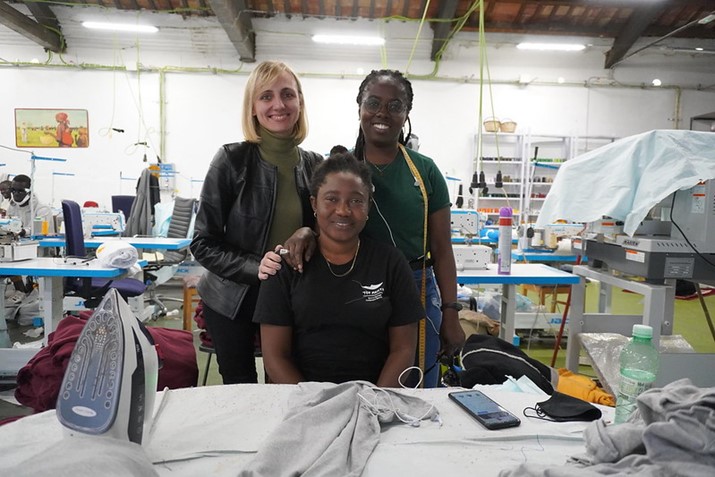

By entering your personal data and clicking “Suscribe,” you agree that this form will be processed in accordance with our privacy policy. If you checked one of the boxes above, you also agree to receive updates from the StreetNet International about our work